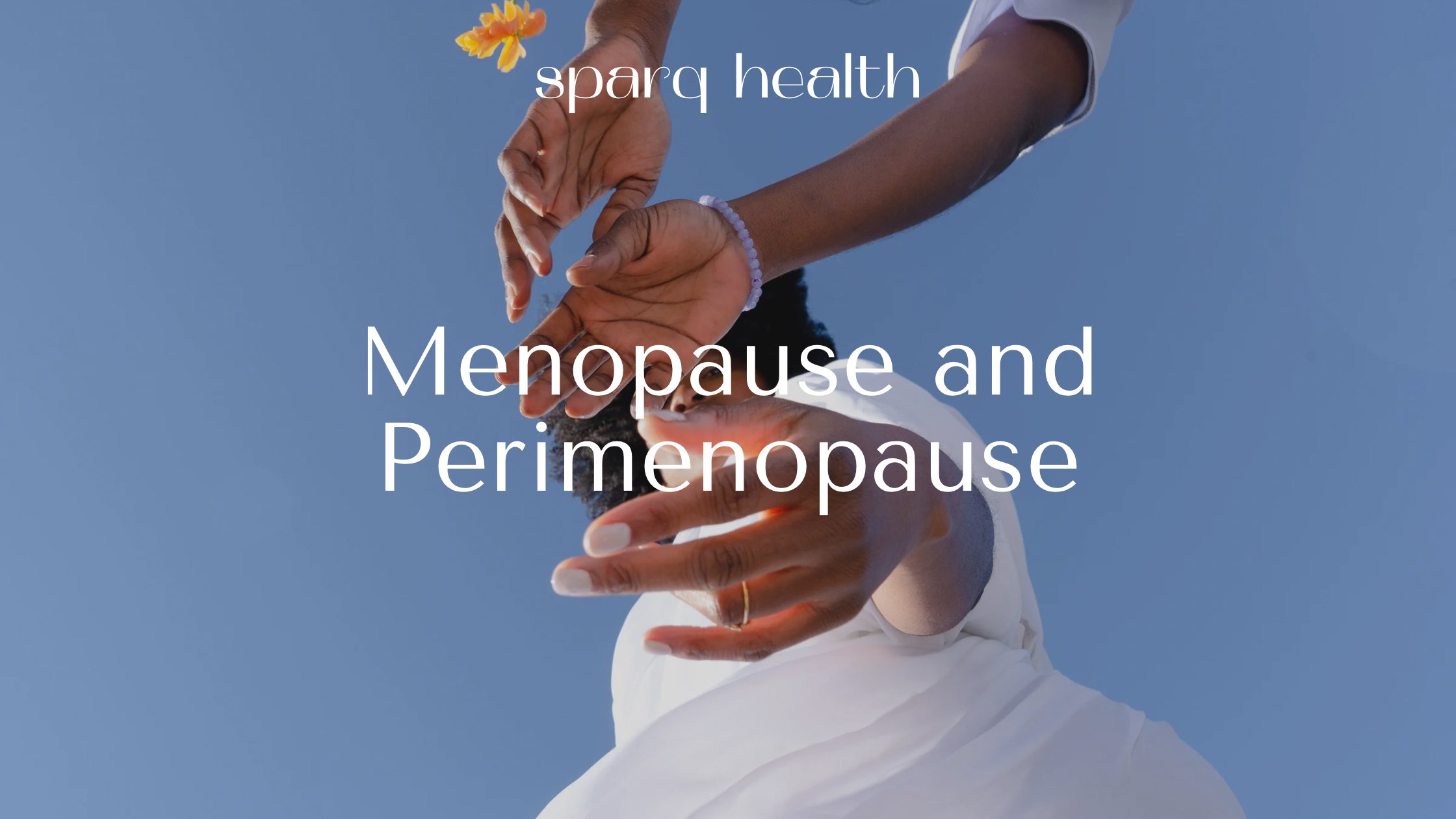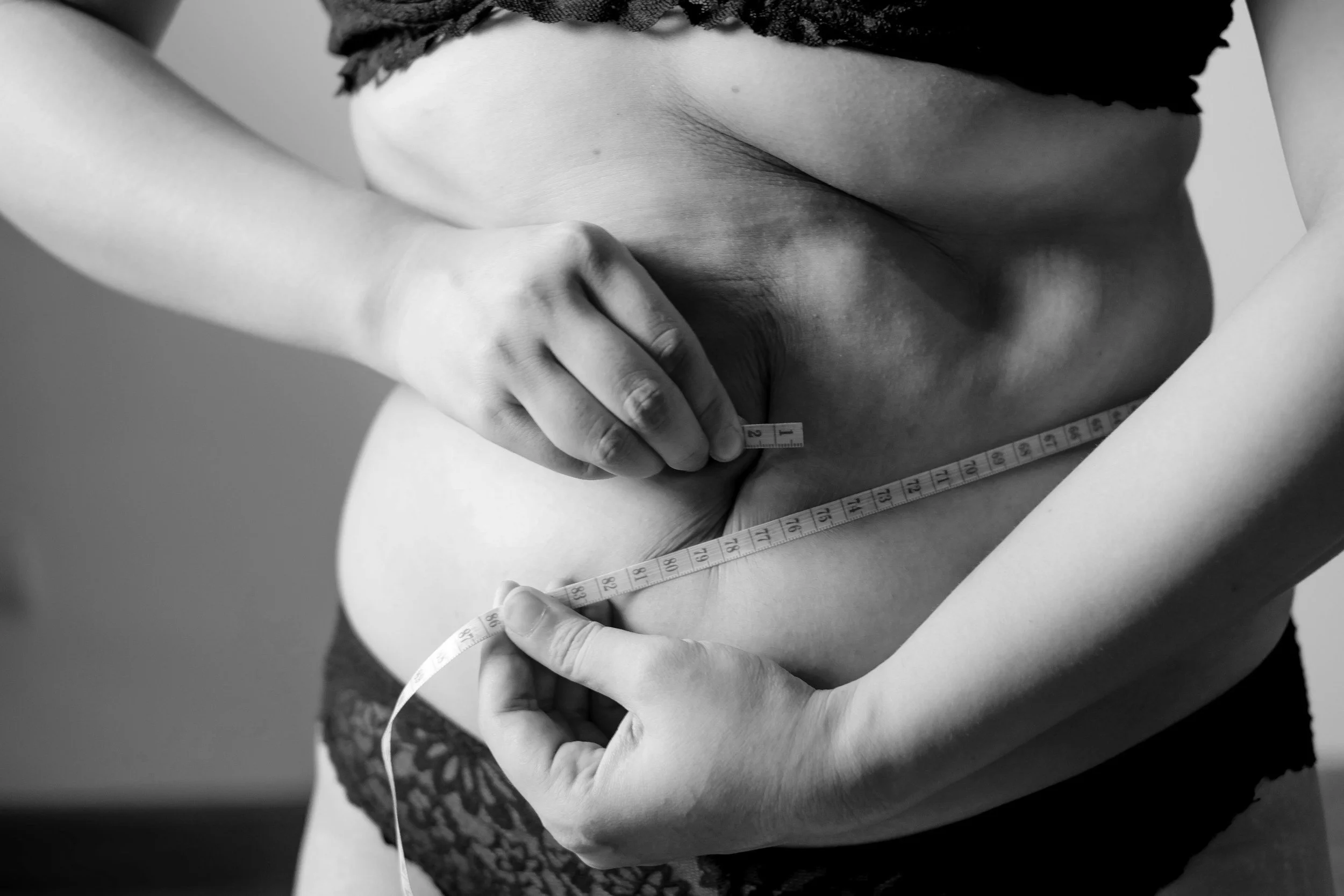
Your Symptoms Are Real.
It’s Time for Real Solutions for Menopause and Perimenopause.

You Don’t Have to Accept Your Symptoms as Just Aging—It’s Time to Treat Them.
If you’ve been told your symptoms are “just part of aging” or that it’s all in your head, you’re not crazy—you know your body best.
Bio-identical hormone replacement therapy (BHRT) is a powerful, science-backed solution for perimenopause and menopause, addressing the root causes of hormonal imbalance rather than masking symptoms. By using hormones identical to those your body naturally produces, BHRT helps restore vitality, improve well-being, and give you back the quality of life you deserve. It’s time to stop being dismissed and start feeling like yourself again.
Symptoms of Menopause and Perimenopause
• Irregular Periods • Hot Flashes • Night Sweats • Sleep Disturbances • Mood Swings • Vaginal Dryness • Decreased Libido • Weight Gain • Thinning Hair • Dry Skin • Breast Tenderness • Fatigue • Memory Problems • Headaches • Joint and Muscle Pain • Increased Urinary Frequency or Incontinence • Urinary Tract Infections (UTIs)
• Irregular Periods • Hot Flashes • Night Sweats • Sleep Disturbances • Mood Swings • Vaginal Dryness • Decreased Libido • Weight Gain • Thinning Hair • Dry Skin • Breast Tenderness • Fatigue • Memory Problems • Headaches • Joint and Muscle Pain • Increased Urinary Frequency or Incontinence • Urinary Tract Infections (UTIs)
•Burning Mouth Syndrome •Electric Shock Sensations •Itchy Skin •Body Odor Changes •Increased Anxiety and/or Depression •Heart Palpitations •Joint Pain (Arthralgia) •Hair Loss • Ringing in the Ears (Tinnitus) •Tingling in the Extremities •Clumsiness and Bruising Easily • Metallic Taste in Mouth • Memory and Problem-Solving Issues •Dry Mouth and Dental Problems •Dry, Brittle Nails •Light-Headedness or Dizziness •Vaginal Pain •Feeling of Insects Crawling on Skin (Formication) •Altered Spatial Awareness •Gum Disease
•Burning Mouth Syndrome •Electric Shock Sensations •Itchy Skin •Body Odor Changes •Increased Anxiety and/or Depression •Heart Palpitations •Joint Pain (Arthralgia) •Hair Loss • Ringing in the Ears (Tinnitus) •Tingling in the Extremities •Clumsiness and Bruising Easily • Metallic Taste in Mouth • Memory and Problem-Solving Issues •Dry Mouth and Dental Problems •Dry, Brittle Nails •Light-Headedness or Dizziness •Vaginal Pain •Feeling of Insects Crawling on Skin (Formication) •Altered Spatial Awareness •Gum Disease
1.3 million women enter menopause annually in the United States
*Average Aged 45-55
60% of women with significant menopausal symptoms seek medical attention, however 75% of them remain untreated.
*Fatigue, low libido, fat gain, muscle loss, brain fog
Only 1 in 21 women in the US will be offered life changing HRT
*Estradiol, Progesterone and Testosterone
Over 250,000 osteoporosis-related hip fractures occur annually in the U.S., with up to 24% mortality in the first year.
*FDA-approved estradiol helps prevent osteoporosis.
Learn About the Importance of Hormone Replacement Therapy
How it works
-
Schedule a no-cost, no-obligation consultation with our expert team to discuss your symptoms and health concerns. This initial meeting will help us understand your needs and outline the next steps.
-
During your consultation, we'll arrange for comprehensive lab work to assess your hormone levels and overall health. We will review your results together, explaining any findings and discussing how they impact your treatment plan.
-
Based on your lab results and consultation, we will craft a personalized treatment plan. Start your treatment and experience the benefits of restored energy, improved mood, and overall well-being as you begin your journey to feeling your best.
-
Enjoy continuous support from our team throughout your treatment. We’ll schedule regular follow-ups to monitor your progress, adjust your plan as needed, and ensure you’re achieving optimal results. Your well-being is our priority, and we’re here to guide you every step of the way.
FAQs
-
Yes! Bioidentical means that the hormones in all of our products is molecularly identical to the hormones your body naturally produces.
-
Sleep Disturbances: Difficulty falling asleep or staying asleep, not necessarily related to night sweats.
Mood Swings: Emotional fluctuations, often including irritability, anxiety, or depressive symptoms.
Vaginal Dryness: Decreased estrogen can lead to a reduction in natural vaginal lubrication.
Decreased Libido: A reduction in sexual desire is common during this transition.
Weight Gain: Metabolic changes can lead to weight gain, especially around the abdomen.
Thinning Hair: Hormonal changes can lead to decreased hair volume or health.
Dry Skin: Changes in skin texture, including dryness and decreased elasticity due to lower estrogen levels.
Breast Tenderness: Hormonal fluctuations can cause breast pain or tenderness, particularly in early perimenopause.
Fatigue: Unusual tiredness, often linked to poor sleep quality.
Memory Problems: Forgetfulness or difficulties with concentration.
Headaches: New patterns of headaches or changes in existing headache patterns.
Joint and Muscle Pain: Aches and pains in joints and muscles without obvious cause.
Increased Urinary Frequency or Incontinence: Changes in urinary habits, including urgency or increased frequency.
Urinary Tract Infections (UTIs): Increased susceptibility to UTIs.
Palpitations: Feeling that the heart is pounding or racing.
Digestive Problems: Changes in gastrointestinal health, including bloating or indigestion.
Changes in Menstrual Flow: Heavier or lighter bleeding during periods.
Dizziness: Occasional feelings of dizziness or unsteadiness.
Allergies: New allergies or changes in existing ones.
Electric Shock Sensations: Brief, sudden sensations of electric shock, often preceding a hot flash.
If you’re experiencing these symptoms, schedule your free Discovery Call Here to discuss treatment options and see if you would be a good fit.
-
Perimenopause is the transition period leading up to menopause, often starting in a woman’s 40s but can be earlier in their 30’s. It’s marked by fluctuating hormone levels and symptoms like irregular periods, hot flashes, and mood changes. Menopause is officially diagnosed when a woman has gone 12 consecutive months without a period, average age in the US around age 51.
-
HRT is safe for most women and provides significant symptom relief. The risks depend on individual factors like age, health history, and the type of HRT used. Working with a healthcare provider to assess personal risks and benefits is key.
-
Yes, declining estrogen can cause vaginal dryness, decreased libido, and painful intercourse. Treatments include:
• Vaginal estrogen (cream, ring, tablet) for dryness
• Moisturizers & lubricants
• Testosterone therapy (in select cases) for libido
• Pelvic floor exercises to improve blood flow & sensation
-
Estrogen plays a role in regulating fat distribution. Before menopause, women tend to store fat in a more “pear-shaped” pattern (hips, thighs, buttocks). As estrogen declines, fat storage shifts toward the abdomen, leading to more visceral fat (fat around internal organs), which is more metabolically active and associated with increased health risks like insulin resistance and cardiovascular disease.
How to Combat These Changes?
• Increase protein intake and resistance training to maintain muscle mass
• Prioritize strength training over just cardio
• Balance blood sugar levels with whole foods and fiber
• Get enough sleep, as poor sleep can disrupt metabolism
-
Yes, low estrogen levels can lead to bone density loss, increasing the risk of osteoporosis, and higher LDL cholesterol, raising the risk of heart disease. Prevention strategies include:
• Calcium & vitamin D supplementation
• Weight-bearing exercises (e.g., strength training, walking)
• HRT, if appropriate, to help preserve bone density
-
Estrogen plays a protective role in cardiovascular health, so when levels decline during perimenopause and menopause, the risk of heart disease, stroke, and metabolic dysfunction increases. Here’s how:
1. Increased LDL (“Bad”) Cholesterol & Decreased HDL (“Good”) Cholesterol
• Before menopause: Estrogen helps maintain higher levels of HDL (good cholesterol) and lower levels of LDL (bad cholesterol).
• After menopause: LDL cholesterol rises, and HDL drops, leading to more plaque buildup in arteries (atherosclerosis), increasing the risk of heart attacks and strokes.
2. Increased Visceral Fat & Insulin Resistance
• Estrogen helps regulate fat distribution and insulin sensitivity.
• When estrogen declines, fat shifts from a subcutaneous (thighs, hips, buttocks) to visceral (abdominal) pattern.
• Visceral fat is metabolically active and releases inflammatory cytokines, which contribute to insulin resistance, higher blood sugar, and increased risk of type 2 diabetes—a major driver of heart disease.
3. Higher Blood Pressure & Stiffening of Arteries
• Estrogen promotes vasodilation (the widening of blood vessels) by increasing nitric oxide production.
• Without estrogen, arteries become stiffer, leading to higher blood pressure and increased workload on the heart.
• Increased arterial stiffness also raises the risk of aneurysms, heart attacks, and strokes.
4. Increased Inflammation & Oxidative Stress
• Estrogen has anti-inflammatory and antioxidant properties.
• Lower estrogen levels lead to higher inflammation and oxidative stress, which accelerate arterial plaque formation and heart disease.
5. Autonomic Nervous System & Heart Rate Variability
• Estrogen influences the autonomic nervous system, which regulates heart rate and blood pressure variability.
• After menopause, women often experience higher resting heart rates, more palpitations, and reduced heart rate variability, which can be a marker for increased cardiovascular risk.














